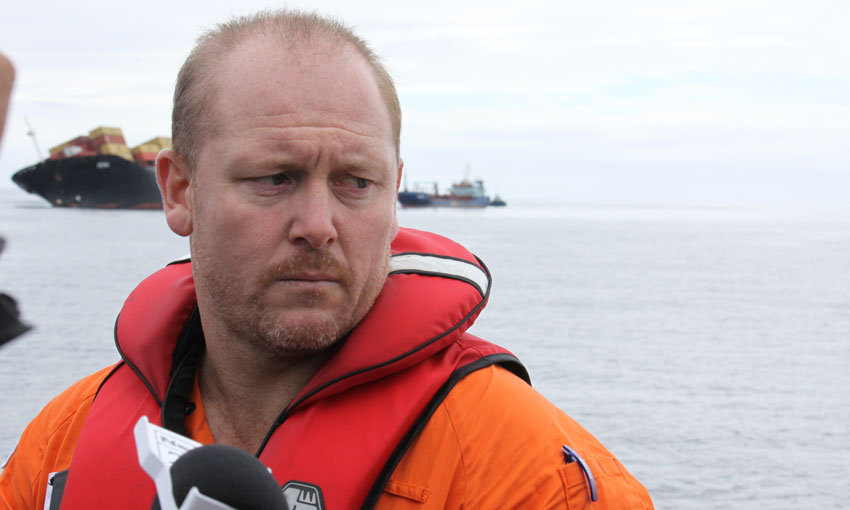By Captain Drew Shannon, managing director, United Salvage
Understandably, the media and public respond with awe, fascination and panic when large vessels end up in trouble. The more unusual or high-profile the location, the more intense the scrutiny. Is it any wonder so many people are agog with what’s happening with the 220,000-tonne Ever Given blocking the Suez Canal?
It’s more understandable that people expect quick outcomes, and that questions as to why “nothing’s happening” would grow when it appears that nothing’s happening. The ship’s still there, right? What on Earth are the salvage mob doing?
Having been there many times; I know the drill.
In 2007, for example, I oversaw the salvage of the Pasha Bulker on Newcastle’s Nobby’s Beach. The political and public pressure to get rid of the vessel was intense. What the average person doesn’t get is that responding to such emergencies is another day in the office for highly experienced and skilled maritime salvage experts. You learn to block out the noise and go about your job in a calm and methodical manner. I so vividly remember seeing the Pasha Bulker for the first time, standing on the beach, and quietly saying to myself “never say never”.
The first task
Task one is boarding and getting to know the vessel – something that can’t be done in five minutes. It’s not like checking over a family sedan. You need to understand what happened on the vessel before the grounding, and what’s happening after. What’s her design and layout? What’s on board, including cargo and fuels? Is the structural integrity compromised, or may it be in due course? There are sometimes opportunities to refloat a stricken vessel quickly, but as was the case with the Pasha Bulker (and seems to be the case with the Ever Given) it turned out that a quick-fix wasn’t possible.
All this while you’re calling in a larger team of salvage experts and equipment, usually from all over the world. It’s highly specialised work, and it’s rare that he resources you need will be just around the corner.
This all takes time. Nothing can be rushed, even when there are screaming headlines and horror stories of economic impacts. Knee-jerking towards an outcome is prompting a worsening of the situation. So many stars and variables need to be aligned so you can have your best shot at a refloat. You must work to the circumstances, not public pressure and news cycles.
What’s happening in the Suez Canal?
So, why has the Ever Given not re-floated yet? It’s because of what we call ground reaction. When a ship runs aground, a proportion of the ships weight is applied to the ground on which it is sitting, rather than floating. The amount of weight being applied to the ground needs to be carefully calculated to assess how much weight needs to be removed in order to let the ship float again. That difference in weight is the ground reaction.
You can overcome ground reaction by removing weight (such as containers and fuel) to allow the ship to float again. Or you can regaining buoyancy by removing ground beneath and around the ship to allow it to float again. Some other tricks include using generators to pump air into the hull to create extra buoyance (like a balloon effect). When ground reaction is sufficiently reduced, the brute force of tugs is typically used to coerce the ship back to a floating state.
But remember we’re talking about a ship that’s 50 metres high. Enormous cranes would be required to reach and lift containers off. It takes a long time to get one container off (let along hundreds or thousands). The canal is remote in most places, and I’d guess the required cranes aren’t easily found. For now, attention is on dredging around the casualty to remove the build-up of sand around the hull.
A bell can’t be un-rung
The other big question is how could this have occurred? To the salvors, that doesn’t matter. It has happened. You can’t un-ring the bell. The answers should come out in due course.
The Nippon salvage company of Japan and Boskalis are the experts in control of this job. I have no doubt they will be successful in due course. I’m sure they have a never-say-never attitude. But everyone needs to be patient and let them do what they have to do. To pressure or cajole for a hurried outcome could jeopardise their efforts.
Captain Drew Shannon has overseen multiple maritime emergencies over the past 15 years, including:
- The Pasha Bulker grounding (Newcastle)
- The Shen Neng 1 grounding (Gladstone)
- The Rena grounding (Bay of Plenty, NZ)
- The West Atlas oil rig clean-up and decommissioning (Timor Sea)
- The APL England containers overboard incident (Qld)
- Iron Chieftain fire (Port Kembla)

